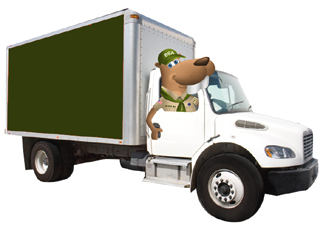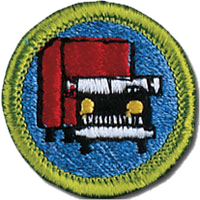Truck Transportation


Resources
- Truck Transportation Class Preparation Page
- Truck Transportation Workbook
- Scoutmaster Bucky's Merit Badge Advancement Quick Reference
- Scoutmaster Bucky's Acknowledgement Form
Related
Truck Transportation Requirements Current Scouts BSA requirements
as of April 28, 2025
as of April 28, 2025
1.
List the major truck lines serving your town.
2.
Do the following:
a.
Describe the role of truck transportation within commerce (the movement
of goods, funds, and information).
b.
Describe how trucks fit into a company's supply chain. This could be a
manufacturer, importer, wholesaler, or retailer.
c.
On paper, map out how goods that are manufactured overseas are
transported to a retailer in this country.
3.
Describe the difference between the gasoline engine and the diesel engine
that power trucks. List the advantages of each.
4.
Visit a truck terminal and complete items 4(a) through 4(e). After your visit,
share what you have learned with your counselor.
a.
Find out what kind of maintenance program the company follows to help
keep its fleet, drivers, and the roadway safe.
b.
Find out how dispatchers maintain communication with drivers on the
road.
c.
Talk with a professional truck driver about safety. Learn about the
truck driver's rules of the road for safe driving. List five
safe-driving rules every professional truck driver must follow.
d.
Review the driver's log and find out what kind of information the log
contains.
e.
Learn about important federal regulations that help ensure public
safety.
5.
Do the following:
a.
Outline the general organization of a trucking company. Describe what
each department does.
b.
List five positions with trucking companies and describe each one.
6.
Name five government agencies that work closely with the trucking industry.
Describe their role.
7.
List five different kinds of trucks. Tell the service each provides.
8.
Assume that you are going to ship by truck 500 pounds of goods (freight
class 65) from your town to another town 500 miles away. Your shipment must
arrive within three days. Explain in writing:
a.
How to prepare the shipment
b.
How to compare at least three carriers for time in transit and
rates
c.
How to choose which carrier to use
d.
How to insure the shipment for damages.
9.
Explain the following terms: bill of lading, ETA, logbook, intermodal,
containers, tariff, shippers, carrier, consignee, drayage, cartage.
10.
Learn about opportunities in the field of truck transportation. Choose one
career in which you are interested and discuss with your counselor the
major responsibilities of that position and the qualifications, education,
and training such a position requires.

